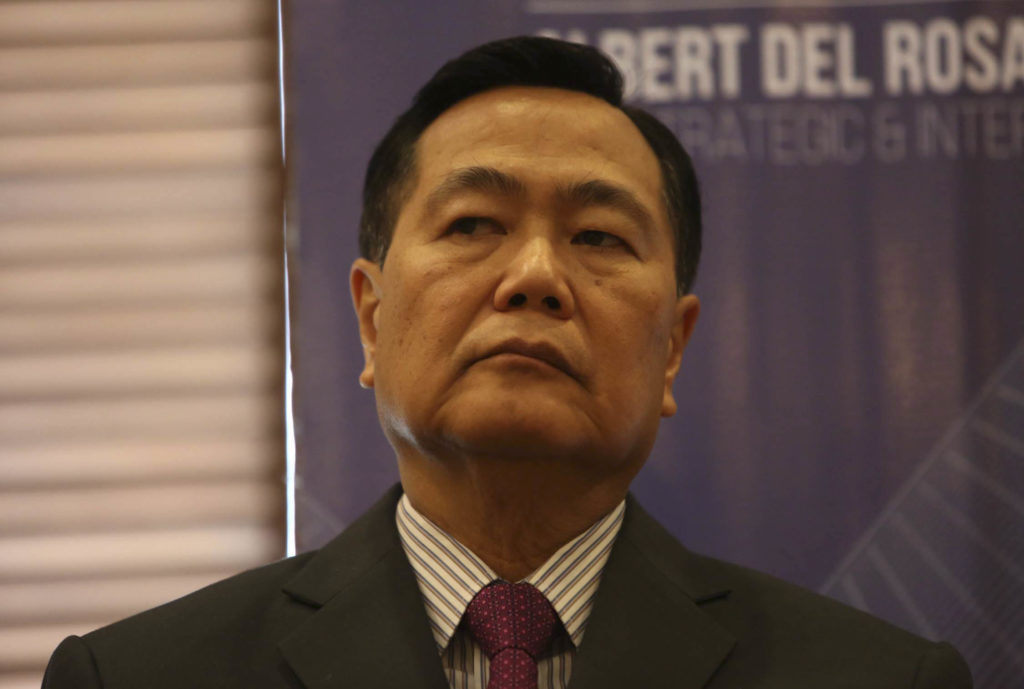Acting Chief Justice Antonio Carpio on Sunday expressed elation over the joint declaration signed by President Duterte and Japanese Prime Minister Shinzo Abe recognizing the freedom of navigation and overflight in the contested South China Sea (SCS).
“The statement of President Duterte upholding freedom of navigation and overflight in the South China Sea should be the main thrust of our foreign policy in the South China Sea,” Carpio said in an e-mail to the Inquirer.
Freedom of navigation
“The Philippines should thus encourage all states to conduct freedom of navigation and overflight exercises in the South China Sea,” he said.
After calling out the President for his decision to go soft on China on the issue of the maritime row in exchange for loans and investments, Carpio said the agreement the President had with Abe was “a most welcome development in resolving the South China Sea dispute.”
The magistrate, who helped the country won a landmark ruling in the international arbitral court declaring the West Philippine Sea within Manila’s 370-kilometer exclusive economic zone, said having a freedom of navigation and overflight “means all ships can sail in and all aircraft can fly over” in the disputed sea region.
He said such activities might be done “without securing the consent of, or giving prior notification to, the coastal states.”
“These freedoms include the conduct of military activities, like naval or aerial drills,” Carpio said.
China had long insisted lone ownership of the entire South China Sea, a vast waterway through which some $5 trillion in global trade passes annually.
“When states exercise freedom of navigation or overflight in the South China Sea, they assert that there are high seas in the center of the South China Sea, and exclusive economic zones around such high seas,” Carpio maintained.
Belong to all mankind
“The waters of the high seas belong to all mankind. The resources in the exclusive economic zone belong exclusively to the adjacent coastal state,” he stressed.
Moreover, he said the exercise of the same rights in the West Philippine Sea also meant that foreign nations were asserting that “there is an exclusive economic zone in that part of the South China Sea.”
“Since the Philippines is the adjacent coastal state in the West Philippine Sea, the resources in this exclusive economic zone logically belong exclusively to the Philippines,” he argued.
“In effect, when states exercise freedom of navigation or overflight in the West Philippine Sea, they affirm the ruling of the arbitral tribunal that the Philippines has a full 200 nautical miles exclusive economic zone in the West Philippine Sea,” Carpio said.
